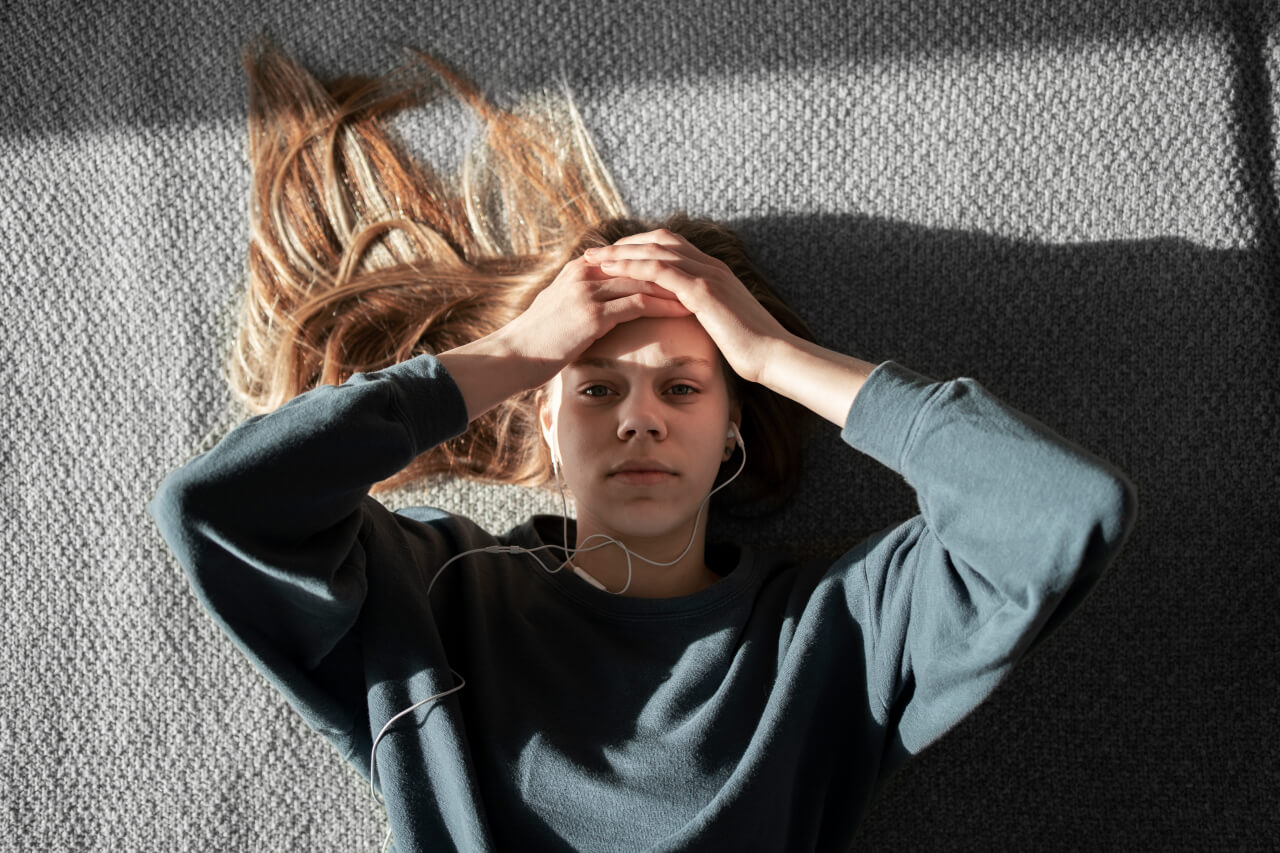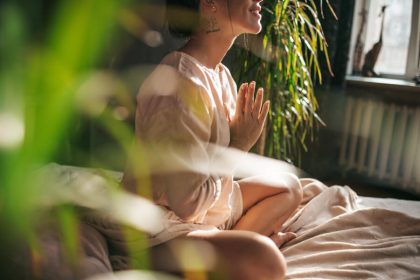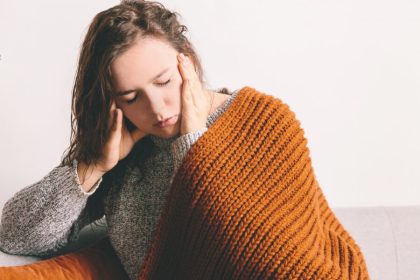Seasonal depression, also known as seasonal affective disorder (SAD), is a type of depression that occurs during specific seasons, typically winter.
It is characterized by recurring episodes of depressive symptoms that coincide with the changing seasons.
Depression vs. Seasonal depression
Depression, also known as major depressive disorder, is a mental health condition characterized by persistent feelings of sadness, loss of interest or pleasure in activities, changes in appetite and sleep patterns, fatigue, difficulty concentrating, and thoughts of self-harm or suicide.
It can occur at any time of the year and is not limited to particular seasons.
Seasonal depression, technically known as seasonal affective disorder (SAD), is a subtype of depression that occurs predominantly during specific seasons, typically fall and winter.
Symptoms of SAD are similar to depression but tend to follow a seasonal pattern.
During the spring and summer months, individuals with SAD may experience relief or improvement in their symptoms.
The main difference between depression and seasonal depression is the seasonal pattern of symptoms associated with SAD.
Depression can occur at any time of the year and is not limited to specific seasons.
It is important to differentiate these two conditions, as the treatment approach may vary.
Causes
While the exact causes are not fully understood, the following factors may contribute to its development:
Reduced sunlight exposure
The decrease in natural sunlight during the winter months can disrupt the body’s internal clock (circadian rhythm), leading to imbalances in hormones and neurotransmitters that affect mood.
Changes in melatonin levels
Reduced sunlight can also disrupt the production and regulation of the hormone melatonin, which plays a role in sleep patterns and mood regulation. Disruptions in melatonin levels can contribute to feelings of depression and fatigue.
Serotonin imbalances
Serotonin, a neurotransmitter that helps regulate mood and happiness, may also be affected by reduced sunlight.
Lower levels of serotonin have been linked to depressive symptoms.
Genetic and biological factors
Some individuals may have a genetic predisposition to Seasonal Depression. Additionally, certain biological factors, such as a disruption in the body’s regulation of neurotransmitters, may increase the risk.
Lack of Vitamin D
Reduced sunlight exposure can also result in lower Vitamin D levels, which has been associated with lower mood and increased risk of depression.
It’s important to note that the causes of SAD can vary among individuals, and a combination of these factors is likely involved.
Symptoms
The symptoms of seasonal depression can vary from person to person, but commonly include:
- Persistent feelings of sadness, emptiness, or hopelessness.
- Lack of interest or pleasure in activities that usually bring joy.
- Increased fatigue and low energy levels.
- Changes in appetite, leading to weight gain or weight loss.
- Difficulty sleeping or excessive sleeping.
- Irritability or increased sensitivity.
- Difficulty concentrating or making decisions.
- Loss of interest in socializing or withdrawing from social activities.
- Physical symptoms such as body aches, headaches, or stomach problems.
- Thoughts of death or suicidal ideation.
It’s important to note that these symptoms occur in a seasonal pattern and tend to alleviate or disappear as the seasons change.
Treatments
The primary treatment options for (SAD), include:
Light therapy
Exposing oneself to bright light, usually through a lightbox designed for this purpose, can help regulate mood and alleviate symptoms of SAD.
Light therapy is typically used daily for a specified duration.
Psychotherapy
Engaging in talk therapy or cognitive-behavioral therapy (CBT) can be beneficial in managing SAD.
These therapies focus on identifying negative thought patterns and developing coping strategies to improve mood and overall well-being.
Medication
Antidepressant medications, such as selective serotonin reuptake inhibitors (SSRIs), may be prescribed by a healthcare professional to alleviate symptoms of seasonal depression. Medication is typically combined with other treatment approaches.
Regular exercise
Engaging in regular physical activity, such as outdoor walks or indoor exercises, has shown to boost mood and reduce symptoms of depression. Exercise helps release endorphins, which are natural mood elevators.
Maintaining a regular routine
Establishing and maintaining a consistent daily routine can help regulate circadian rhythms and manage symptoms of SAD.
This includes sticking to regular sleep patterns and engaging in activities that promote a sense of well-being.
Seeking social support
Connecting with loved ones, friends, or support groups can provide emotional support and alleviate feelings of loneliness or isolation associated with SAD.
It’s important to consult a healthcare professional for an accurate diagnosis and individualized treatment plan for seasonal depression.
5 Tips to get over it
Here are 5 tips to overcome SAD:
Maintain a Healthy Lifestyle
A healthy lifestyle plays a crucial role in managing seasonal depression.
Firstly, prioritize regular exercise, as physical activity releases endorphins that can boost mood and alleviate symptoms.
Aim for at least 30 minutes of moderate exercise, such as walking, swimming, or yoga, most days of the week.
Additionally, focus on consuming a balanced diet rich in fruits, vegetables, whole grains, and lean proteins.
Avoid excessive consumption of sugar, processed foods, and alcohol, as they can negatively impact mood and energy levels.
Increase Exposure to Natural Light
The reduced daylight during the winter months can contribute to seasonal depression.
To combat this, try to maximize your exposure to natural light.
Open curtains and blinds during the day to let in sunlight, spend time outdoors when the sun is out, and consider investing in a light therapy box that emits bright, artificial light.
Light therapy has been shown to effectively alleviate symptoms of seasonal depression by mimicking natural daylight and regulating mood.
Establish a Routine and Set Goals
Seasonal depression can leave you feeling unmotivated and lacking a sense of purpose.
Establishing a routine and setting achievable goals can help combat these feelings.
Create a daily schedule that incorporates activities you enjoy and provides structure.
Break down larger goals into smaller, manageable tasks to maintain a sense of accomplishment.
This can help boost self-esteem, increase motivation, and provide a sense of direction during the winter months.
Reach out for Support
It is important to seek support from loved ones or professionals when dealing with seasonal depression. Talk to trusted friends or family members about your feelings and experiences, as they can offer emotional support and understanding.
Consider joining support groups or seeking therapy to learn coping strategies and receive professional guidance.
Remember, you are not alone, and there are resources available to help you navigate through this challenging period.
Practice Light Therapy
Use light therapy or a lightbox that emits bright, artificial light similar to natural sunlight.
Light therapy is thought to help balance brain chemicals and regulate mood.
Expose yourself to the lightbox for approximately 30 minutes each morning, within the first hour of waking up.
Consult with a healthcare professional to determine the appropriate type of light therapy and duration for your specific needs.
Conclusion
Seasonal depression, also known as seasonal affective disorder (SAD), is a type of depression that occurs during specific seasons, most commonly in the winter months.
It is characterized by symptoms such as low mood, lack of energy, increased sleep, and changes in appetite.
The exact cause of seasonal depression is not fully understood, but it is believed to be primarily triggered by reduced exposure to sunlight, which disrupts the body’s internal clock and affects neurotransmitter levels.
Treatment options for seasonal depression include light therapy, where individuals are exposed to bright artificial light, which can help regulate circadian rhythms and improve mood.
Other treatments may involve psychotherapy, medication, and lifestyle changes, such as regular exercise, maintaining a healthy diet, and managing stress levels.
While seasonal depression can be challenging, it is important to recognize the symptoms and seek professional help if needed.
With the appropriate treatment and support, individuals experiencing seasonal depression can effectively manage their symptoms and find relief.
By understanding the condition and taking proactive steps to address it, individuals can regain control over their mental well-being and find enjoyment in all seasons of the year.
FAQs
What is seasonal depression?
Seasonal depression, also known as seasonal affective disorder (SAD), is a recurrent depressive disorder that occurs seasonally, most commonly during the fall and winter months.
What are the common symptoms of seasonal depression?
Common symptoms of seasonal depression include low mood, lack of energy, changes in appetite, sleep disturbances, and loss of interest in activities.
Who is more susceptible to seasonal depression?
Seasonal depression can affect people of all ages, but it is more prevalent in individuals living in regions with reduced sunlight during winter months and those with a family history of depression.
How is seasonal depression diagnosed?
Seasonal depression is typically diagnosed based on a person’s reported symptoms, their timing and recurrence with specific seasons, and the exclusion of other medical conditions.
What are the treatment options for seasonal depression?
Treatment options for seasonal depression may include light therapy, psychotherapy, medication, and lifestyle changes such as regular exercise and maintaining a balanced diet.
Can lifestyle changes help alleviate seasonal depression symptoms?
Yes, lifestyle changes like increasing exposure to natural light, maintaining a regular sleep schedule, engaging in physical activity, and practicing stress management techniques can help alleviate seasonal depression symptoms.
Is seasonal depression a temporary condition?
Yes, seasonal depression typically resolves on its own as the seasons change, with symptoms improving in spring and summer.
Can seasonal depression affect productivity and daily functioning?
Yes, seasonal depression can impact a person’s productivity, ability to concentrate, and overall daily functioning, leading to difficulties at work, school, and in personal relationships.
Can seasonal depression be prevented?
While it may not be entirely preventable, taking proactive steps such as light therapy, maintaining a healthy lifestyle, and seeking support can help reduce the risk and severity of seasonal depression.





